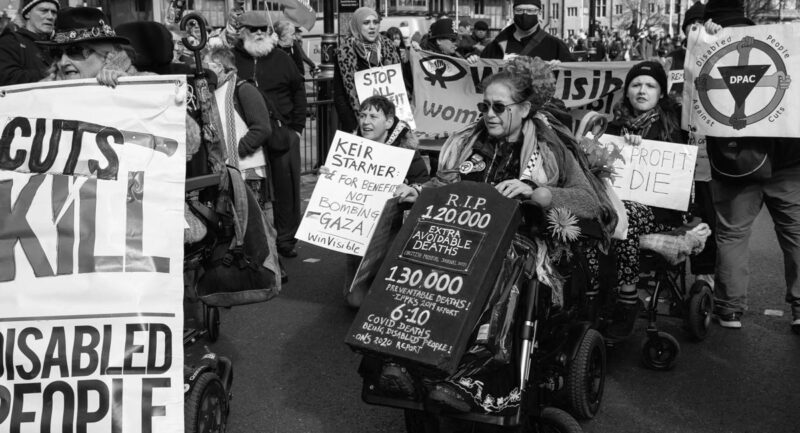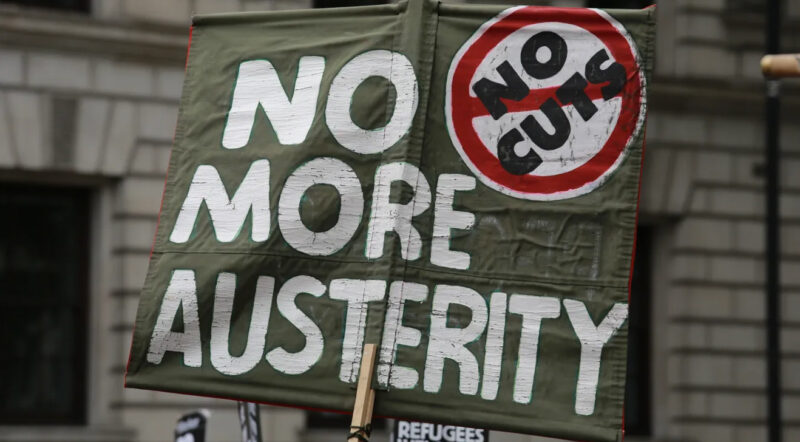The Egyptian Revolution’s new upsurge
 Marcus Halaby looks at how the growing strike wave, mass demonstrations in Tahrir square and Israeli embassy protests herald a new wave of revolution.
Marcus Halaby looks at how the growing strike wave, mass demonstrations in Tahrir square and Israeli embassy protests herald a new wave of revolution.
Eight months after the fall of Mubarak, Egypt’s newly independent trade unions are now gearing up for their first major challenge to the military government that replaced him. Having its origins in four small unions that organised illegally before the revolution, the Egyptian Federation of Independent Trade Unions is demanding a minimum wage of 1,500 Egyptian pounds a month, roughly equivalent to $200, and more than three times the barely enforced Mubarak-era minimum wage that is still on the statute book.
The core of the movement consists of 22,000 textile workers at the Misr Spinning in the industrial city of Mahalla, just under a twentieth of its population. They are also demanding a tripling of bonuses, and state intervention to increase investment and the supply of raw materials.
Hundreds of thousands of workers are expected to join the Federation’s strike in defiance of anti-union laws passed by the new government in its first few days in power.
These include teachers demanding bonus increases and the provision of permanent contracts, as well as postal workers, train drivers and hospital and airport staff.
Other demands have included the sacking of corrupt or incompetent managers, the payment of delayed wages, the resignation of the Minister of Civil Aviation and the reopening under workers’ management of recently closed enterprises.
The most notable demand has been for a maximum wage of 15 times the minimum wage, essential to prevent corrupt managers from siphoning off revenues from large enterprises and state institutions by providing fake “jobs” to relations and selected protégés.
The strike movement has also intersected with the revival of mass street protests against continued military rule, echoing their demands for the abolition of military tribunals for civilians, the trial of corrupt officials and the punishment of those responsible for the deaths of the 850 people killed during the eighteen day uprising against Hosni Mubarak.
These protests have since mushroomed in response to Israel’s killing of five Egyptian soldiers in a border incident in mid-August, when Israeli security forces breached Egyptian territory in the Sinai peninsula in pursuit of Islamist militants allegedly responsible for a series of attacks on Israeli civilians in Eilat.
Popular anger at Israel’s actions, and at its bombardment of Gaza in retaliation, prompted mass demonstrations outside the Israeli embassy in Cairo, calling for the breaking of diplomatic relations and a review of Egypt’s 1979 peace treaty with Israel, and forced the military regime to threaten to withdraw Egypt’s ambassador from Tel Aviv.
During the first of these protests, demonstrator Ahmed Shahhat earned international notoriety and the sobriquet “Flag Man” for scaling the embassy to take down its Israeli flag and replace it with an Egyptian flag.
The second on 9 September, which also targeted the nearby Saudi embassy, saw protesters bring down one of the walls, forcing the evacuation of the Israeli ambassador and all his remaining staff.
The military regime has since declared a state of emergency in response to the masses’ intrusion into its relationship with the Zionist state, although Israeli prime minister Benjamin Netanyahu pledged that Israel would continue to observe its peace treaty with Egypt, evidently fearful at the possible loss of a regional Arab ally in the event that matters continue to escalate.
All of this comes just weeks before presidential and parliamentary elections, now scheduled for October or November, already-postponed by the Supreme Council of the Armed Forces (SCAF) headed by Mubarak crony Field Marshal Tantawi.
These are expected to produce a good result for the military junta’s Islamist allies in the Muslim Brotherhood and the ultra-puritan Salafist movement, resting on the weariness of much of the middle class to continued revolutionary upheaval, as well as on the ingrained conservatism of rural regions whose poorest layers have yet to see any appreciable economic gains from a revolution whose centre of gravity lay in the urban working class.
Their showing will doubtless be increased by the military regime’s rigging of the legal framework for the elections, ratified in March by means of a rushed constitutional referendum. The SCAF has already demanded from the prime minister “tough measures” against trade unionists engaging in strikes and the paramilitary police have subjected workers demonstrating in Suez to brutal attacks and beatings. It is plain that Tanta and his junta represent the high command of the counterrevolution. Demonstrators in Tahrir Square who chanted “Tantawi is Mubarak” are right. The field marshal has refused to appear as a witness at Mubarak’s trial. He should indeed appear but in the dock alongside his partner in crime.
The growing convergence of economic and political demands – of a mass strike movement combining with a mass movement on the streets – can pose the question of political power afresh, and ensure that the revolution is not derailed by a show of “elections” that will allow Egypt’s ruling capitalist class to re-establish stability behind the facade of a miltarised “democracy”.
The most revolutionary sections of the youth and the trade unions should create a movement demanding elections be held, not for the old parliament and under an old constitution that bans “parties who foment class hatred,” but for a sovereign Assembly to draft and debate a new constitution. It must debate how a new dictatorship can be prevented, grant full democratic rights for soldiers, and what Egypt’s relations with the USA, Israel and the Palestinians should be.
The military junta, the US and the Israelis hate like sin the idea that the masses should express their views on all these issues let alone even more fundamental questions like what should be the social foundation of the economy in industry commerce and agriculture that can really lead to equality and freedom from exploitation.
It is clear that neither the SCAF, nor the Muslim Brothers, nor liberals like Ayman Nour of the Ghad (Tomorrow) Party, Naguib Sawiris, of the Free Egyptians Party, or Mohamed ElBaradei, can be trusted to fulfill the democratic aspirations of the youth or the need for social justice from the workers, the peasants and the urban poor.
Strategy
What can be done, then, at this cross road of the revolution? Firstly, it is vital that committees or councils of delegates are formed from all the sections on strike to run what can rapidly become a general strike against the military regime. Representatives of the revolutionary youth, the rural population and the shantytowns should be drawn in too.
Secondly, the mass movement of millions is the only force that can outweigh and contain the Islamists drive for power. But it must be democratically run and given political leadership if it is to compete with the Islamists for leadership of the the masses. A national strike coordination should formed to formulate the movements’ demands.
If the strike movement can coalesce with the movement on the streets, and bring the organised working class to the head of the democratic struggle, then this time we will not see the people’s victory stolen from them.
Thirdly, these revolutionary tactics pose the question of power for the workers and peasants – of a government based on their organisations. One that can finally rule in their interests.
If this is achieved, the fulfilment of the Revolution of 2011 as a socialist revolution that can set the whole middle east and beyond aflame with liberation.






